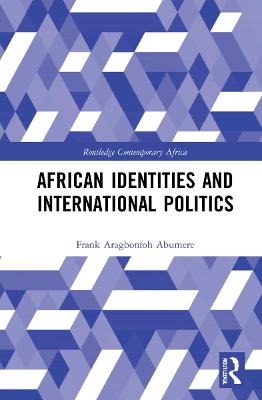Routledge Contemporary Africa
1 total work
Using the lenses of realism, liberalism, the English School and constructivism, this book explains how the divisions and differences in African identities affect African international politics.
This book explores the African condition in the twenty-first century. It analyses how geographical, racial, ethnic, linguistic, religious and power differences shape continental and intercontinental relations in Africa through the creation of identities and values which militate against intra-continental or regional relations. The author assesses inclusionary and exclusionary, rational and irrational relationships, interactions and non-interactions which occur between geographical, linguistic, racial and religious entities in Africa. He suggests that, in these moments, one entity will negatively relate, interact or refuse to interact with another entity for the gains of the former and to the detriment of the latter, or even to the detriment of both entities. Divided into two parts, the first section of the book employs an ecumenical approach to discuss the divisions and differences that disunite Africa as a continent and Africans as a people, and how they affect African international politics. Part two goes on to explore how this 'othering' can be superseded by non-discriminatory, unifying and positive identities and values.
Examining the possibility of creating identities and values that can unite Africa as a continent and Africans as a people, this book will be of interest to scholars of African politics, international relations and political theory.
